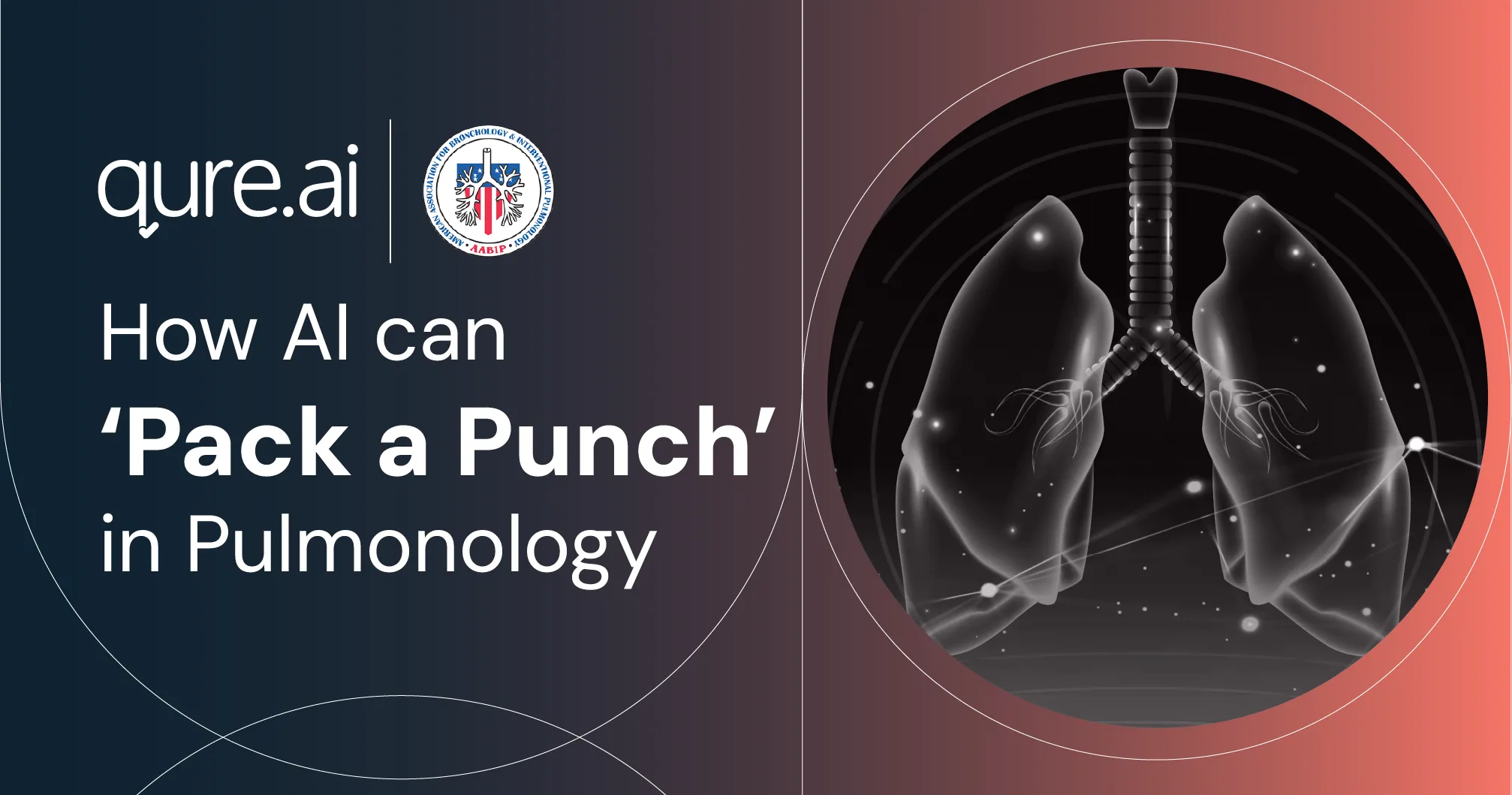A discussion of how innovations in assistive medical device technology such as robotic bronchoscopy and novel medical imaging AI can be game changers for the early detection of lung cancer and early-stage treatment planning.
Back
In pulmonary medicine, early Incidental Pulmonary Nodules (IPN) detection and subsequent characterization is critical to improve patient outcomes. IPNs, often the first indicators of potential lung cancer, have traditionally been identified by a manual or keyword search facilitated review of chest X-ray and CT reports (CXRs) by radiologists or pulmonologists.
However, to err is human, and radiologists can overlook subtle nodules, leading to delayed diagnosis and treatment. This is where Artificial Intelligence (AI) is poised to revolutionize the current paradigm of lung cancer treatment, offering a powerful tool for early IPN detection and transforming the landscape of thoracic medicine.
AI algorithms, trained on extensive datasets of CXRs, can detect clinically relevant IPNs with unparalleled accuracy and consistency, with high sensitivity and specificity. These sophisticated algorithms can identify suspicious nodules that may be missed by human observers, in some cases in up to 70% of radiographs, significantly increasing the overall detection rate and thus casting a wider net for early lung cancer detection. The early identification of IPNs through AI augments the pulmonology funnel, thus enabling interventional pulmonologists to initiate diagnostic bronchoscopies earlier, expediting the path to definitive diagnosis and treatment.
The implications of AI-assisted early IPN detection are far-reaching. By putting patients into investigation pathways more quickly, surgeons, radiologists and pulmonologists can collect tissue samples for cancer cell testing at an earlier stage. This accelerated process facilitates a prompter conclusive diagnosis, allowing patients to enter the appropriate treatment pathway more swiftly, potentially even for cure. AI is no doubt a game-changer in the quest for early intervention and improved survival from the world’s deadliest cancer.
Maximizing medical device innovations in tune with AI
The field of pulmonology has witnessed a remarkable transformation with the advent of robotic bronchoscopy. This innovative technology combines the precision of robotics with the flexibility of traditional bronchoscopy, enabling pulmonologists to conclusively diagnose lung cancer at earlier stages. By utilizing thin, maneuverable catheters guided by advanced robotics, physicians can now access peripheral lung nodules inaccessible to CT guided biopsy with unparalleled accuracy and stability.
This minimally invasive approach not only improves diagnostic yields but also significantly reduces the time from initial nodule detection via X-ray and/or CT to biopsy, allowing patients to receive timely treatment. The technical aspects and clinical implications of groundbreaking robotic bronchoscopy is poised to revolutionize the early detection and management of lung cancer.
AI to enhance clinical confidence and efficiency
Beyond its role in early detection, AI offers many benefits that bolster clinical confidence and streamlines workflow in pulmonology. One such benefit is the standardization of nodule assessment. AI ensures consistent evaluation of CXRs, mitigating inter-observer variability amongst radiologists and pulmonologists and upholding high diagnostic accuracy. This standardization enhances the reliability and reproducibility of IPN detection across different healthcare settings.
Moreover, AI's rapid ability to identify IPNs accelerates subsequent diagnostic tests and interventions, expediting patient access to care. This efficiency optimizes clinical paradigms and enables pulmonologists to make informed treatment decisions more rapidly. The seamless integration of AI into the diagnostic process saves time and allows for a more streamlined approach to patient management.
Another crucial aspect of AI's impact on clinical confidence lies in its advanced nodule analysis capabilities. AI can generate Lung Nodule Malignancy Risk Scores, aiding in the differentiation and distinction between benign and malignant nodules. This sophisticated analysis reduces false positives and unnecessary procedures while providing invaluable clinical decision support. The risk scores incorporate nodule characteristics, such as texture and composition, and calculating doubling time of volume.
AI can alleviate patient anxiety by accurately and expeditiously identifying nodules requiring further intervention, and more importantly those that do not warrant biopsy. Integrating AI-powered nodule analysis empowers pulmonologists to make more accurate and informed decisions, ensuring patients receive the most appropriate care based on their needs.
Furthermore, AI-generated reports offer detailed insights and visual aids that facilitate effective communication between pulmonologists and patients. These detailed and organized reports improve patient understanding and engagement in their care plan, fostering a patient-centric approach. The synergy of technology and human expertise creates a collaborative environment where the best possible outcomes can be achieved.
The future of pulmonology with AI
The integration of AI into pulmonology pathways holds immense promise for optimizing patient care. Early lung cancer detection through AI-assisted IPN identification can significantly improve survival rates. Moreover, AI's ability to enhance clinical decision-making, guide interventions, and optimize workflows has the power to transform the practice of pulmonology.
As the field of AI continues to evolve, innovative solutions like Qure.ai's qXR-LN are at the forefront of harnessing the potential of artificial intelligence to transform pulmonary medicine. By embracing these cutting-edge technologies, pulmonologists can usher in a new era of precision, efficiency, and patient-centric care.
The digital future of pulmonology is here, and AI is poised to impact the fight against lung cancer. With its ability to detect IPNs earlier, enhance clinical confidence, guide bronchoscopy interventions, and improve patient outcomes. As we stand on the precipice of this transformative era, it is an exciting time where innovation and dedication converge to shape a brighter, healthier tomorrow.
